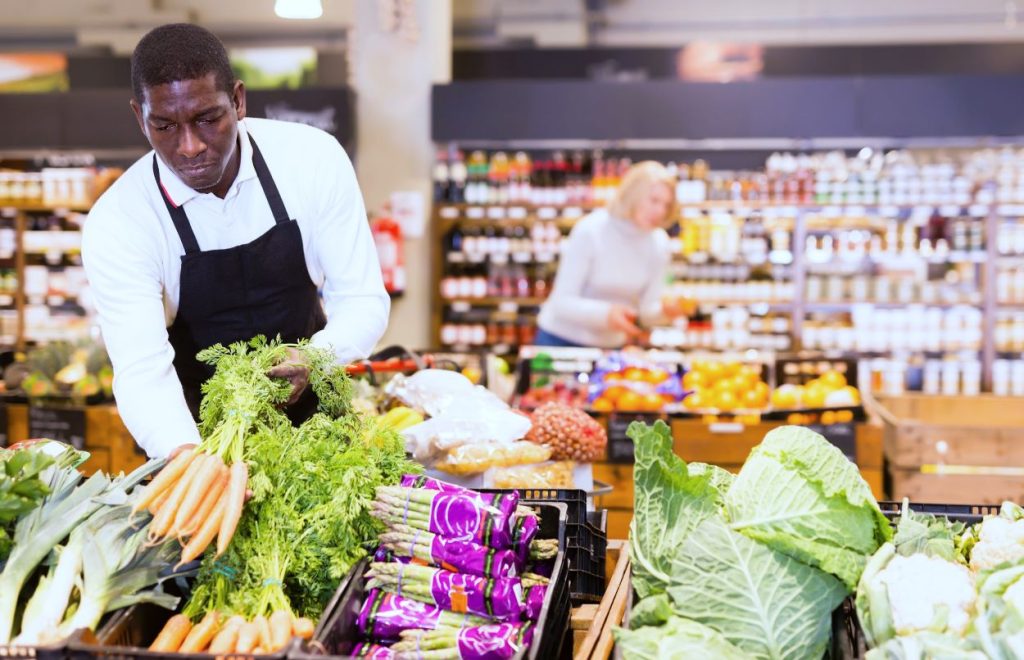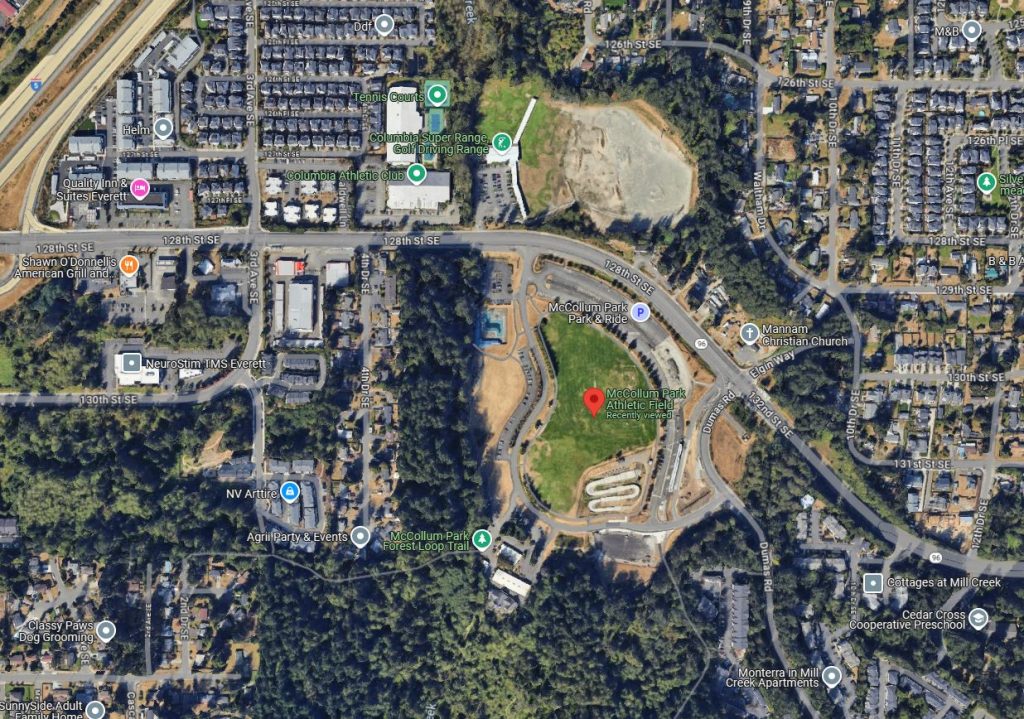EVERETT—When Snohomish County opens its upcoming Food and Farming Center in Everett’s McCollum Park in 2027, residents can look forward to fresh locally grown food provided by local farms from Whatcom to North King counties. This will also provide a new revenue source for local farmers by allowing them to grow and sell off season products year-round.

Planning is currently well underway for the project, led by its Progressive Design Build Team, and is currently awaiting permitting consistent with National Environmental Policy Act (NEPA) policies. Current planning decisions involve deciding precisely where in McCollum Park to place the Food and Farm Center, lot sizes for economic viability, and the type of equipment and storage is needed to meet demand, to name a few.
“We’re looking at the needs and building for what the needs are and making sure we’re right sizing each piece of it,” said Linda Neunzig, Division Manager for Snohomish County Conservation and Natural Resources Agriculture Office.
Though Snohomish County is building the Food and Farming Center on behalf of Snohomish County farmers, the Center is a regional center that will be open to all farmers from Whatcom to North King counties.
The project has successfully secured $15 million in funding from local, state, and federal sources including a recent WSDA RFSI grant for over $1.6 million; however, the county is still seeking additional funding. The goal is to open completely funded and debt free in 2027.
What’s most important for the current phase, Neunzig added, is maintaining stakeholder engagement to ensure what the county is building is the right facility for those who will be using it.

The decision to build a Food and Farming Center stemmed from a county-led outreach effort, asking local farmers what tools and resources they need to be economically viable. Overwhelmingly, farmers expressed a need for processing fresh local products as well as aggregation and distribution.
As it stands, most farmers located in Snohomish County and surrounding areas are responsible for processing, aggregation, and distribution—there’s simply nowhere in the surrounding area for products to be sliced, diced, and packaged.
To address this, the Food and Farming Center will offer core operational functions, which include aggregation, processing, distribution and marketing, as well as space and equipment for storage and value‐added processing. This space will allow for processing, group distribution, and sales. Washing, slicing, packaging, freezing and other services to be identified by the agricultural community will also be available.
“A lot of markets require a certain amount of processing such as using certified potable water to clean things with, not everyone has that. For a lot of farmers, it’s making sure we’re providing that infrastructure, so they have access to markets,” said Neunzig. “If we’re providing to a school district, for example, one farmer may not be able to provide the quantity the district needs but if we can bring ten farmers together to meet that order then they can sell into that school district, where before as a small farmer they may not have been able to. But if we can put several farmers together then they can have a share into that market.”
The Center will only deal with fruits and vegetables, no livestock. There are a number of new USDA certified meat processing facilities in Snohomish and Skagit counties, that are easily able to cover the needs of local farmers, Neunzig informed the Lynnwood Times.
Local farmers also identified the lack of a commercial kitchen where they can do value-added product; for example, using strawberries to make strawberry jam or chickens to make chicken pot pie.
The Food and Farming Center will have an on-sight commercial kitchen which will allow for valued added production providing year-round income for producers and potential export products. A shared-use kitchen, where individuals can rent existing infrastructure for hourly or daily time blocks, provides a convenient way for food entrepreneurs to access existing infrastructure without the high startup costs, the county says.
The kitchen will also contain a commissary, whose business model is to rent out kitchen time, equipment, and storage; and two incubator kitchens that will provide business development assistance, and business counseling.
“That value-added product can then be frozen or made all yearlong and sold all year-round instead of selling fresh product one time of year, and you’re selling it for a higher dollar amount,” said Neunzig.
The Food and Farmer Center will also have an indoor, year-round Farmer’s Market open to the public two-to-three days a week. While the specific location of the Food and Farming Center within McCollum Park has yet to be decided, the attached farmers market is planned to be located right off 128th Street to allow visitors easy access.
“When it’s cold out, and it’s windy, and raining you can come inside, have a cup of coffee, do your shopping, enjoy chatting with all of the farmers and be able to come home with all of your groceries,” said Neunzig.
Since education is also a key factor of the project, educational seminars and cooking classes will also be held at the farmers market, though the specifics are still in the works.
Having an alternative option where locals can buy their groceries has its benefits both nutritionally and economically, Neunzig informed the Lynnwood Times.
Most supermarket produce, for example, travels thousands of miles from a farm before it reaches its shelves. By buying groceries directly from the farmers, patrons will get fresher fruits and vegetables that will last longer, have more nutritional value, and generally cost less because transportation costs are greatly reduced.
“When you’re spending your dollar, that dollar is going directly to that farmer to support that farmer, to keep that farmer in business,” said Neunzig. “Your dollar has a direct impact on your community when you buy from your farmer.”
To address food insecurity in the region, the county has partnered with Volunteers of America of Western Washington to start a Seed to Food program which includes farmers growing food specifically intended to be donated to local food banks which can be picked up on sight, delivered straight to the food bank, or distributed directly through VOA’s distribution hub in Arlington.
When the Center opens, the County will be run by individual operators, not county employees. The County plans to send out an RFP (a bid for potential vendors) closer to opening to find these individual operators who, in its current plan, will be stationed in each portion of the project—i.e. commercial kitchen, farmers market, processing, and so on. Operators will function under turnkey leases with the county.
“Whatever an operator comes in, it’s important that their focus is on local agriculture,” said Neunzig.
The County plans to hold an official update for the Food and Farming Center for the public this November 6 during the Focus on Farming event at the Evergreen State Fair.
Author: Kienan Briscoe











One Response
Very cool!! Can’t wait until this opens.